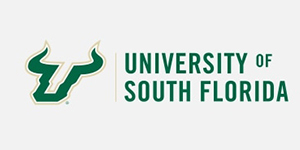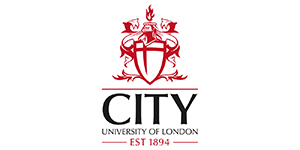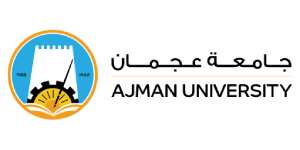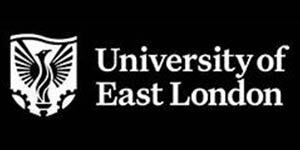Programme Type: Undergraduate
Course Overview
The environmental management systems curriculum provides students with the knowledge and skills to work as part of this environmental community in a variety of areas of specialization, including air permitting, environmental enforcement, soil conservation, water quality, wetland delineation, environmental compliance, coastal restoration, and risk assessment and management. Environmental management systems graduates are well-qualified for a variety of careers because of their solid training in sciences, problem-solving, and written and oral communication, all of which will be critical for the fast paced, ever-changing future job market that will favor workers who are well-trained and demonstrate flexibility and adaptability.
The environmental management systems curriculum is partitioned into three areas of concentration: (1) environmental analysis and risk management, (2) policy analysis, and (3) resource conservation. Each concentration includes a variety of elective courses that allow students to gain expertise in specific areas that interest them. Particularly in their junior and senior year, students interact with a wide range of accomplished environmental professionals to refine their program of study and career goal, and focus on specific career paths within the broad environmental management field. However, the environmental management systems curriculum is designed to be sufficiently flexible to allow students to prepare for positions in the public or private sectors working in the office, laboratory, or field.
Graduates with a concentration in environmental analysis and risk management will have a knowledge and practical understanding of: chemistry (analytical, organic, and quantitative analysis, instrumentation, soil and water chemistry); environmental microbiology; environmental fate and transport geology (hydrology); land use planning (including GIS/GPS); site investigation principles and collection methods; human and ecological risk assessment; and federal and local regulations governing site assessment, site evaluation, and site remediation.
Entry Requirement
International Freshman Requirements:
International students who have never attended a post-secondary education institution will apply as a freshman (first-year student), and must have the equivalent of a U.S. high school diploma with an academic average equivalent to a “B” (3.0 or better on the U.S. 4-point grading system).
The “academic average” is determined by averaging the grades of secondary school academic courses, excluding nonacademic courses such as physical education, vocational/technical courses, religion, art, music, etc.
Students must submit complete official records for the secondary level of education and are strongly encouraged to submit ACT or SAT scores. Students who have taken advanced-level exams, international baccalaureate higher-level exams, or other types of secondary education beyond the 12th year of schooling should submit the official certificates, transcripts, and course syllabi for possible advanced placement university credit.
International Transfer Student Requirements:
International students who have attended any post-secondary level college, university or institution must apply as transfer students. LSU requires the equivalent of a 3.0 (“B” average on the U.S. 4-point grading system) for all transferable credit from accredited international institutions. Applicants with less than the equivalent of 30 semester hours of transferable credit (approximately one year of full-time study) must also qualify for freshman admission.
Students must submit official transcripts from each post-secondary institution attended, listing courses taken and grades earned. Also required are the official course descriptions or syllabi to be evaluated for possible credit toward an LSU degree. Transfer credit is not given for English as a second language, non-English native language courses, or vocational/technical courses. For LSU to award transfer credit, the institution must be accredited or recognized by the Ministry of Education or equivalent government agency in that country, and be suitable for university level credit.
1.Transfer Credit from U.S. Institutions:
International students who have attended a regionally accredited U.S. college or university must meet U.S. transfer requirements: an overall GPA of at least 2.50, and 30 semester hours of transferable credit, including a college-level course in English and mathematics. If less than 30 hours are earned, freshman requirements must also be met.
2.Transfer Credit from Both International & U.S. Institutions :
If credit is earned from both international and U.S. post-secondary accredited institutions, a 3.0 GPA is required from international institutions and a 2.5 GPA on all U.S. college work. Students who have less than a 3.0 GPA from international institutions may be admitted if:
- They meet the requirements for transfer from a U.S. accredited college or university (30 semester hours of credit above remedial, 2.50 GPA, math and English courses)
- They have an overall GPA of 2.50 or higher when the U.S. GPA is combined with the international GPA. In this case, courses passed with the equivalent of “C” or higher will be considered for transfer credit from accredited post-secondary international institutions
Fees
| Estimated Yearly Cost: 2020-21 | Louisiana Resident | Non-Louisiana Resident |
|---|---|---|
| Tuition & Fees | $11962 | $28639 |
| Housing | $7860 | $7860 |
| Meal Plan (12 Tiger Meals) | $4314 | $4314 |
| TOTAL | $24136 | $40813 |
This information was accurate on : 09/12/2020
Please contact us for more information about this courses







.jpg)


.jpg)





















.jpg)




.jpg)








.jpg)


















.jpg)





.jpg)



.jpg)


.jpg)





